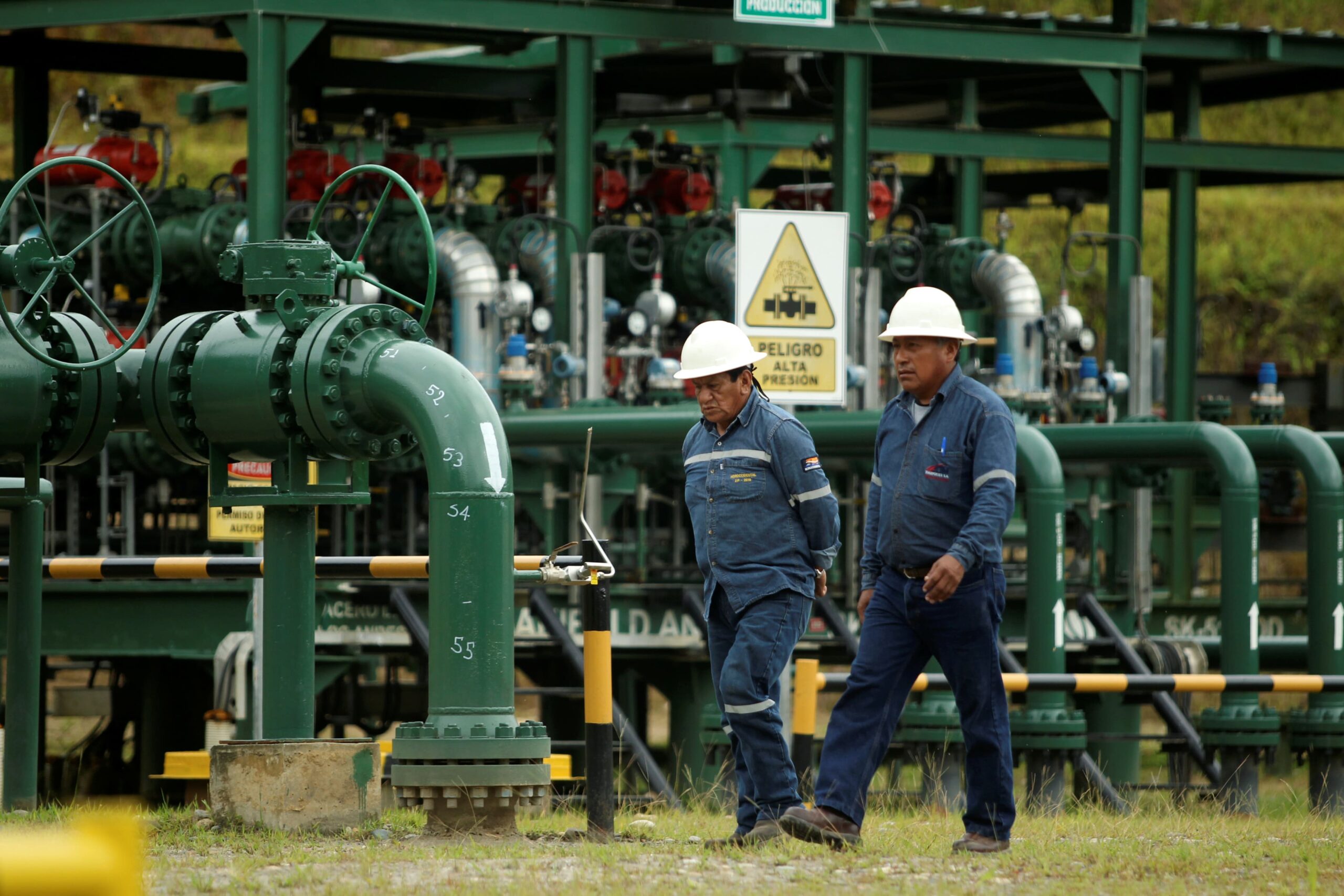Last August, Ecuadorians voted to keep the oil from block 43 in the heart of the Amazon rainforest’s Yasuní park in the ground. But months after the victory in the polls, the fate of oil exploitation in Yasuní is still uncertain.
Last month, recently elected president Daniel Noboa said in an interview to a local media outlet that he believed that a “moratorium [to the referendum result regarding oil exploitation in the Yasuní] is a viable path”.
While Noboa supported keeping oil in the ground during the refendum, he now argues that Ecuador is at war and that “we are not in the same situation as two years ago”.
Activists and indigenous people told Climate Home they were concerned about the president’s remarks, adding that democracy is under threat and that their “hope is being taken away”.
Back in August, 59% of Ecuadorians voted to stop oil drilling in block 43. Environmentalists around the world celebrated the victory as an example of how to use democratic processes to leave fossil fuels in the ground.
Since then though, the country has gone through a political and social crisis due to a rise in gang violence. The government declared a state of emergency earlier this year, following the escape of a powerful drug lord from a top security prison.
The new president Noboa suggested that the oil from the Yasuní could help fund the “war” against drug cartels.
Taking away hope
Pedro Bermeo is a spokesperson for Yasunidos, a coalition of indigenous NGOs from the Amazon that led the call for the referendum. He said Noboa’s statement is “worrying, unwise, and undemocratic” as Noboa is saying he won’t abide by people’s votes.
Belén Páez, president of climate and indigenous rights NGO Fundación Pachamama, said Noboa’s statement “is very dangerous in several ways because it attempts against the citizens’ decision and puts democracy at risk”.
As someone who voted in favor to keep Yasuní’s oil underground, Bermeo said that people like him feel their “hope is being taken away”.
Bermeo said that, when the refendum took place, Ecuador was already facing extreme violence and poverty. But nevertheless, people voted to keep the oil in the ground.
“There was a feeling of hope to protect life on the planet”, says the activist. So now Bermeo argues that voters feel defrauded and “have stopped believing in the State”.
Belén Páez added “it makes us all feel bad and distrustful”.
Páez, who has worked to protect indigenous rights in Ecuador, added that Noboa’s remarks could result in a set back of other environmental policies.

Moi Guiquita of the indigenous Waorani people in the Ecuadorian Amazon pulls a boat over flooded jungle areas at the lagoon of the Yasuni National Park in the Bameno community, in the Pastaza province, in Ecuador, July 29, 2023. REUTERS/Karen Toro
Fighting back
On February 1, the indigenous Amazon Waorani Nationality declared themselves in a ‘territorial emergency’ and demanded that the government respects the referendum.
At a press conference, the indigenous group rejected Noboa’s proposal of a moratorium. They added that a moratorium would perpetuate the violation of indigenous peoples’ rights and territory, including those of the Tagaeri and Taromenane, the only two indigenous peoples in voluntary isolation in Ecuador.
The Waorani Nationality announced that, if a moratorium is formally proposed, they will take legal action against the Ecuadorian State. Their decision to do so was supported by the Confederation of Indigenous Nationalities of the Ecuadorian Amazon.
“We are not going to allow our rights to continue being violated,” said Waoranai Nationality president Juan Bay, “it is time for us to have social and environmental justice”.
Second referendum
Mauricio Alarcón is a rule of law and democracy campaigner at Fundación Ciudadanía y Desarrollo. He said this situation leaves voters with “an unpleasant feeling”.
Alarcón argues that Noboa’s statement is contradictory to his past stances, as he vowed to protect the Yasuní when he was a presidential candidate.
He added that a moratorium on the referendum is technically possible, but it might not be as easy as the government is making it seem.
The results of a referendum can only be reversed through another referendum, he said, which would force the government to propose a new vote on whether to put in place a moratorium..
If what the government intends is a total reversal of what has been decided regarding the Yasuní, a referendum is also the way to go, “and it will be the citizens the ones to have the last word”, states Alarcón.
Since his remarks in January, president Daniel Noboa hasn’t referred to the moratorium again. But government insiders say that it is still a possibility.
